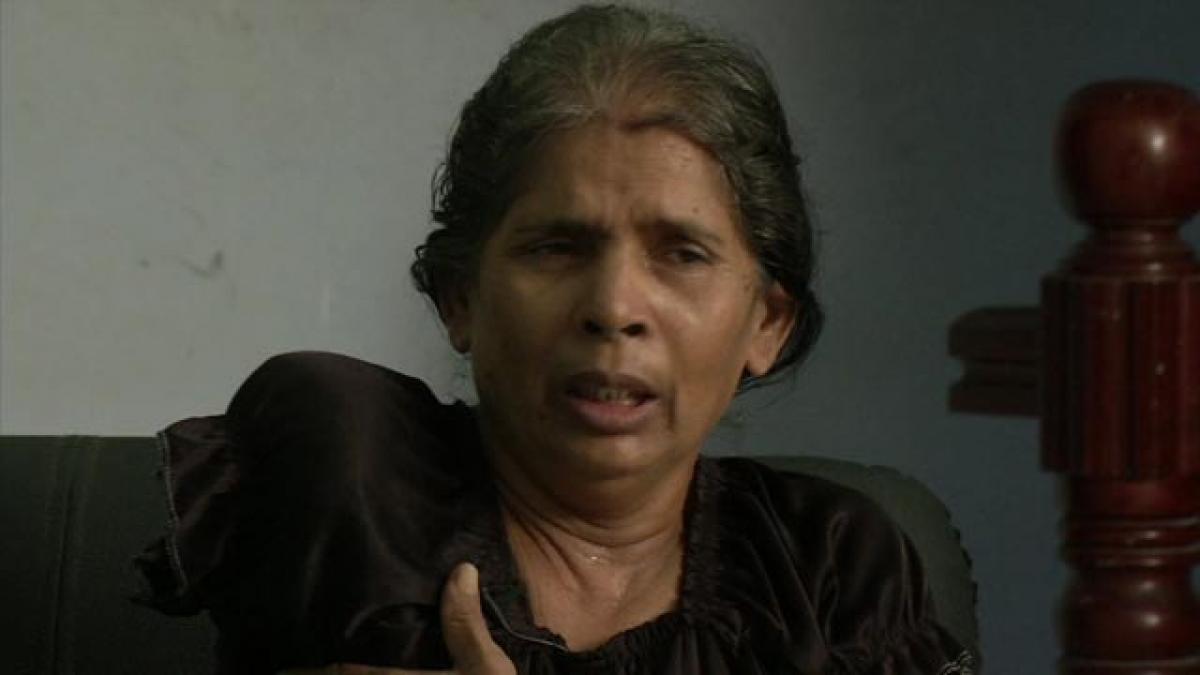Live
- Caught unawares: Dubai must brace for future storms
- DEO suspends teacher accused of sexual assault
- PM ‘cursing’ Congress out of despair: Maharashtra Cong Chief
- Applications are invited for Junior Colleges Scheme District Scheduled Castes Development Officer Ramlal
- A nomination was filed on the second day for the Nagar Kurnool parliamentary seat
- SP Gaikwad inspected the Telangana Amarnath Saleswaram Jatara yatra arrangements
- Rahul Gandhi's decision to contest from Wayanad shows 'lack of confidence': BJP President Nadda
- IPL 2024: Delhi bowlers will go after all of SRH’s top-order batters, says head coach Ricky Ponting
- At Amroha rally, PM Modi sends out ‘meaningful’ message for Muslims and Hindus
- Tripura records highest 79.83 pc voter turnout in Northeast
Just In

When Kasthuri Munirathinam crawled out of the window of a second floor apartment in Riyadh, she was scared for her life. The 55-year-old housemaid from Tamil Nadu was determined to escape from her employer\'s apartment where she worked as a domestic help.
When Kasthuri Munirathinam crawled out of the window of a second floor apartment in Riyadh, she was scared for her life. The 55-year-old housemaid from Tamil Nadu was determined to escape from her employer's apartment where she worked as a domestic help. She had been in Saudi Arabia for just two months, one of thousands from the country heading to the Gulf States every year for work, but was terrified she would never see her family again.
"I thought they would kill me. I had to escape. I wasn't given enough to eat. They had my wages, my passport, my phone," Munirathinam said in her Vellore residence. Her desperate bid to escape last September hit international headlines after the housemaid said her employer had chopped her hand off in the affray, with the injury resulting in an operation to amputate her arm.
Videos and photos of her lying in a hospital bed, arm heavily bandaged, prompted India's Foreign Ministry to complain to the Saudi Arabian authorities about the attack although the exact details remain unclear. Saudi police said Munirathinam's arm was amputated due to injuries she sustained in the fall from the building. Meanwhile, she is still waiting for action to be taken against her employer.
Munirathinam's widely reported story has put a human face to the dilemma faced by many Indian workers, particularly women - whether to leave their villages to take up jobs overseas paying up to three times more than back home but putting their fate in the hands of recruitment agents. Munirathinam said she decided to go overseas to work when her family racked up debts of Rs 30,000 by taking out loans to fund her daughters' weddings and to build a house.
A migration survey by the Tamil Nadu government released in 2015 showed that a migrant spends an average of Rs 108,112 rupees to a secure a job overseas, with half going to recruitment agencies and the rest for visas and travel. But the survey of 20,000 households also revealed that 39 percent of women and 21 percent of men who work abroad reported not receiving the promised wages. "It is a cycle of no food, no rest and no promised wages," says Clarammal Panipitchai, convenor of the Tamil Nadu Domestic Workers Union.
"In a recent case, a woman from Tuticorin tried to commit suicide. That was her ticket back home." Munirathinam remembers her journey vividly and her agent unexpectedly switching her destination to Riyadh from Dubai. "We were flown to Sri Lanka. There were so many of us from different states. We spent three days there and were then put on flights to different countries," she said.
Since the 1980s, New Delhi has signed various agreements with the Gulf States to address the protection and welfare of its workers but even a new series of agreements was not seen by campaigners as likely to stop human trafficking. The UAE has reassured that it would ensure rapid investigations and prosecutions of traffickers and safeguard the rights of victims.
But activists say these agreements are unlikely to change the situation for the millions who travel for work but end up trapped in abusive situations with employers taking away their identity documents. "The bilateral agreements are focused on ensuring more people get jobs and bring back remittances, but not protecting the worker and his basic rights," says Bernard D'Sami, coordinator of the non-government Arunodhaya Migrant Initiative in Chennai, which works on labour issues arising out undocumented migration.
"People arrive at the destination country to find no labour contract and no valid work permit. At the end of 90 days, when their tourist visa expires, they are undocumented people in a foreign land. That's when the hell begins." Indian officials took up 538 cases in Kuwait in 2015 and 282 cases of
physical abuse in Saudi Arabia. But for Munirathinam any changes that happen come too late. "My arm was amputated, there was promise of justice and I was flown back home, right back to the circumstances that had forced me to take up the job," she said. (The writer is with Thomson Reuters Foundation).
By Anuradha Nagaraj

© 2024 Hyderabad Media House Limited/The Hans India. All rights reserved. Powered by hocalwire.com







